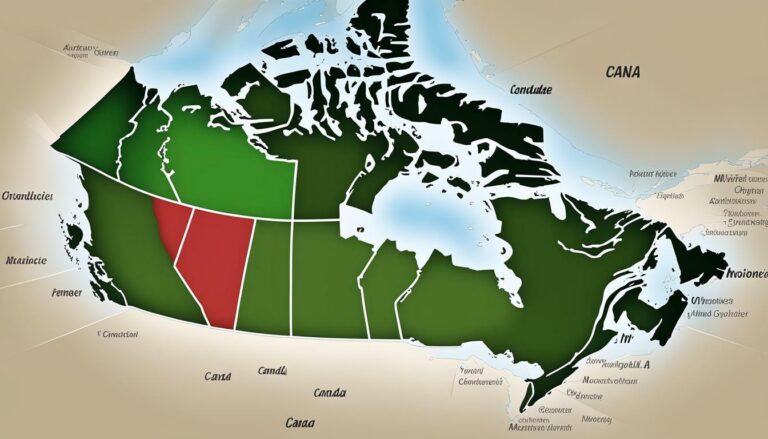Understanding the Requirements for the Dutch Highly Skilled Migrant Visa
The Dutch Highly Skilled Migrant Visa offers career-oriented expats the opportunity to work in the Netherlands, but it comes with specific requirements and criteria that need to be met. It is crucial for individuals seeking this visa to have a clear understanding of what is expected of them in order to have a successful application process.
Key Takeaways:
- The Dutch Highly Skilled Migrant Visa is available for expats who wish to work in the Netherlands.
- Requirements and criteria must be met in order to be eligible for the visa.
- Recognised sponsorship is an important aspect of the application process.
- Conditions for admission and residence must be fulfilled.
- An income threshold needs to be met, with exceptions for certain professions.
Recognised Sponsorship for the Dutch Highly Skilled Migrant Visa
To apply for the Dutch Highly Skilled Migrant Visa, employers need to be recognised as sponsors by the Dutch government. This recognition is crucial as it demonstrates the employer’s ability to meet certain requirements and ensures that they can hire highly skilled migrants from outside the European Union.
Being a recognised sponsor involves following a specific application process. The employer must submit an application to the Dutch Immigration and Naturalization Service (IND), providing necessary information about their organization, such as its legal status, financial standing, and compliance with Dutch labor laws. Once the IND reviews and approves the application, the employer is granted recognized sponsorship status.
| Benefits of becoming a recognised sponsor: |
|---|
| Ability to hire highly skilled migrants quickly and efficiently |
| Streamlined visa application process for employees |
| Access to a larger pool of international talent |
Being a recognised sponsor not only facilitates the Dutch Highly Skilled Migrant Visa application process but also allows employers to contribute to the growth and development of their organization by attracting and retaining skilled professionals.
Conditions for Admission and Residence
Meeting certain conditions is essential for obtaining admission and residence under the Dutch Highly Skilled Migrant Visa. These conditions are designed to ensure that the visa is granted to individuals who possess the necessary qualifications and skills to contribute to the Dutch economy and society.
To be eligible for the Dutch Highly Skilled Migrant Visa, applicants must meet the following requirements:
- Have a valid employment contract with a recognized sponsor in the Netherlands.
- Receive a salary that meets the income threshold set by the Dutch government.
- Possess the required educational qualifications or relevant work experience in a highly skilled profession.
- Have valid health insurance coverage in the Netherlands.
- Provide an original and valid passport.
It is important to note that meeting these conditions does not guarantee automatic approval of the visa. Each application is assessed individually, and additional factors such as the availability of jobs in the applicant’s field and the overall economic situation may also be considered.
Conditions for Residence
Once a highly skilled migrant has been granted admission to the Netherlands, they must also fulfill certain conditions for residence. These include:
- Registering with the local municipality within five days of arrival.
- Providing a valid residence permit within three months of entering the country.
- Adhering to Dutch laws and regulations, including tax obligations.
- Participating in civic integration programs, if required.
It is important for individuals seeking the Dutch Highly Skilled Migrant Visa to familiarize themselves with these conditions and ensure that they fulfill all the necessary requirements. Failure to comply with any of these conditions may result in the revocation of the visa and potential deportation from the Netherlands.
| Conditions for Admission | Conditions for Residence |
|---|---|
| Valid employment contract with a recognized sponsor | Registration with the local municipality |
| Salary that meets the income threshold | Provision of a valid residence permit |
| Required educational qualifications or work experience | Adherence to Dutch laws and regulations |
| Valid health insurance coverage | Participation in civic integration programs if required |
| Original and valid passport |
By fulfilling the conditions for admission and residence, highly skilled migrants can enjoy the benefits of living and working in the Netherlands under the Dutch Highly Skilled Migrant Visa.
Income Threshold and Exceptions
Highly skilled migrants applying for the Dutch Highly Skilled Migrant Visa must demonstrate an income above a set threshold, although exceptions apply to certain professions. The income threshold is reviewed annually and is based on the Dutch labor market conditions. It serves as a measure to ensure that highly skilled migrants are compensated fairly for their expertise and qualifications.
For the year 2021, the gross monthly income threshold for highly skilled migrants is set at €4,752 for applicants aged 30 or older. However, for migrants under the age of 30, the threshold is slightly lower at €3,484 per month. It’s important to note that these income amounts are subject to change, so it’s crucial to stay updated with the latest requirements.
While the income threshold is a general requirement, there are exceptions for certain professions that are considered in high demand in the Dutch labor market. These professions are recognized as scarce occupations and have lower income requirements. The IND maintains a list of these professions, and if you work in one of them, you may be eligible for the Dutch Highly Skilled Migrant Visa even if your income falls below the standard threshold.
| Profession | Income Threshold |
|---|---|
| Software Engineer | €3,300 |
| Medical Specialist | €4,100 |
| Research Scientist | €3,700 |
It’s essential to consult the most up-to-date information from the Dutch immigration authorities or seek advice from an immigration lawyer to understand the specific income requirements and exceptions for your profession. Meeting the income threshold or qualifying under the exceptions is crucial for a successful Dutch Highly Skilled Migrant Visa application.
EU Blue Card Scheme
The EU Blue Card scheme offers an alternative visa option for highly skilled migrants with higher income and educational requirements. This program provides an opportunity for individuals who meet the criteria to work and live in the Netherlands, contributing to the country’s economy and workforce.
Applicants under the EU Blue Card scheme must meet certain income thresholds, which are higher compared to the requirements for the Dutch Highly Skilled Migrant Visa. These thresholds vary depending on factors such as age and field of work. In addition to the income requirement, applicants must also provide evidence of their educational qualifications, such as a relevant university degree.
The EU Blue Card scheme offers several advantages for highly skilled migrants. It provides a faster pathway to permanent residency and allows for easier mobility within the European Union. With an EU Blue Card, individuals have the flexibility to work and reside in any EU member state, making it an attractive option for those seeking international career opportunities.
| Advantages of the EU Blue Card scheme: |
|---|
| • Faster pathway to permanent residency |
| • Mobility within the European Union |
| • Access to international career opportunities |
The EU Blue Card scheme provides an alternative route for highly skilled migrants who meet the higher income and educational requirements. It offers a range of benefits and opportunities, making it an attractive choice for those seeking to work and live in the Netherlands.
Application Process Overview
The application process for the Dutch Highly Skilled Migrant Visa involves several steps, from the employer’s application to the collection of the residence permit. It is important to understand the process to ensure a smooth application experience.
Step 1: Employer Application
The first step is for the employer to apply for recognition as a sponsor. This involves meeting specific criteria and providing necessary documentation to prove the legitimacy of the company and its intention to hire highly skilled migrants.
Step 2: IND Checking
Once the employer’s application is approved, the process moves on to the Entry and Residence Procedure with the IND (Immigration and Naturalisation Department). The IND will check the application for completeness and verify if all the required information has been provided. If any additional documentation or clarification is needed, the IND will request it at this stage.
Step 3: Residence Permit Collection
After the IND has reviewed and approved the application, the highly skilled migrant can collect their residence permit. This usually takes place upon arrival in the Netherlands. The residence permit authorizes temporary stay in the country and is valid for up to five years.
| Application Process Overview |
|---|
| Step 1: Employer Application |
| Step 2: IND Checking |
| Step 3: Residence Permit Collection |
It is important to note that highly skilled migrants do not require an employment permit, but they must be paid an income that meets a certain threshold. However, there are exceptions to this income requirement for individuals in certain professions.
Additionally, there is an alternative pathway called the EU Blue Card scheme. This offers an option for highly skilled migrants with higher income and educational requirements. The application process for the EU Blue Card is different from the regular Dutch Highly Skilled Migrant Visa and has its own set of criteria.
“The application process for the Dutch Highly Skilled Migrant Visa involves several steps, from the employer’s application to the collection of the residence permit.”
Provisional Residence Permit and Application Process Variations
Depending on the circumstances, applicants for the Dutch Highly Skilled Migrant Visa may need to obtain a provisional residence permit before proceeding with the application process. This permit allows individuals to stay in the Netherlands while their application is being processed. The need for a provisional residence permit is determined based on factors such as the applicant’s country of origin and the duration of their intended stay.
When applying for the Dutch Highly Skilled Migrant Visa, it is important to be aware of the different application process variations that may arise. These variations can occur depending on whether a provisional residence permit is required.
For applicants who need a provisional residence permit, the application process involves several steps. First, the employer must submit an application to become a recognized sponsor on behalf of the applicant. Once this is approved, the applicant can proceed with the Entry and Residence Procedure with the Immigration and Naturalization Service (IND). The IND will then check the application for completeness and accuracy. Finally, upon arrival in the Netherlands, the applicant must collect their residence permit.
| Variation | Steps |
|---|---|
| Provisional Residence Permit Required | 1. Employer applies for recognition 2. Entry and Residence Procedure with IND 3. IND checks application 4. Applicant collects residence permit upon arrival |
| No Provisional Residence Permit Required | 1. Employer applies for recognition 2. Entry and Residence Procedure with IND 3. IND checks application 4. Applicant collects residence permit upon arrival |
It is important for applicants to carefully follow the specific requirements outlined by the IND and provide all necessary documentation to ensure a smooth and successful application process. By understanding the provisional residence permit and application process variations, applicants can navigate the Dutch Highly Skilled Migrant Visa process with confidence.
Required Documents and Submission
Submitting the required documents accurately and in a timely manner is crucial for a successful Dutch Highly Skilled Migrant Visa application. The documents serve as evidence of your eligibility and help the authorities assess your qualifications. It is essential to ensure that all documents are complete, up to date, and meet the specific requirements outlined by the Dutch immigration authorities.
Here is a comprehensive list of the documents typically required for a Dutch Highly Skilled Migrant Visa application:
| Document | Description |
|---|---|
| Valid passport | A copy of the passport information page and any valid residence permits. |
| Employment contract | A formal contract that outlines your employment terms, including salary, duration, and job responsibilities. |
| Evidence of education | Academic degree certificates, diplomas, or other qualifications that prove your educational background and relevant skills. |
| Curriculum vitae (CV) | A detailed resume that highlights your professional experience, achievements, and skills. |
| Proof of employer’s recognition | A document confirming that your employer is a recognised sponsor by the Dutch immigration authorities. |
| Proof of income | Payslips, bank statements, or tax documents that demonstrate your income meets the required threshold. |
It is important to submit all the necessary documents as per the immigration requirements. Ensure that your application is complete and accurate to avoid any delays or rejections. Keep in mind that some documents may need to be translated into Dutch or English by a certified translator. Be aware of the specific submission method, whether it is through an online portal or by mail.
Fees and Duration of the Dutch Highly Skilled Migrant Visa
Understanding the fees and the duration of the Dutch Highly Skilled Migrant Visa is essential for planning and budgeting purposes. As an expat considering working in the Netherlands, it is crucial to be aware of the financial requirements and the length of time you can stay in the country under this visa.
When applying for the Dutch Highly Skilled Migrant Visa, there are certain fees that need to be paid. These fees cover the cost of processing your application and vary depending on factors such as your situation and the duration of your visa. It’s important to note that the fees are subject to change, so it’s recommended to check the latest information on the official immigration website or consult with an immigration specialist.
The duration of the Dutch Highly Skilled Migrant Visa can range from one to five years, depending on your circumstances. The initial visa is usually granted for a period of one year, and it can be extended if you continue to meet the requirements. It’s important to keep in mind that the duration of your visa is linked to your employment contract, so if your contract is terminated, your visa may also be affected.
| Type of Visa | Duration | Fees |
|---|---|---|
| Dutch Highly Skilled Migrant Visa | One to five years | Varies |
It’s crucial to carefully consider the duration of your visa when making plans for your stay in the Netherlands. If you anticipate staying in the country for an extended period, you may need to factor in the costs of visa extensions and any additional fees that may apply.
By understanding the fees and the duration of the Dutch Highly Skilled Migrant Visa, you can make informed decisions about your career and life in the Netherlands. This knowledge will help you plan your finances and ensure that you comply with the requirements of the visa, allowing you to make the most of your time in the Netherlands.
Conclusion
Meeting the requirements for the Dutch Highly Skilled Migrant Visa is crucial for expats aspiring to work in the Netherlands, and understanding the application process is key to a successful outcome.
To be eligible for the visa, individuals must be sponsored by a recognised sponsor and fulfill specific conditions for admission and residence. These conditions include meeting the income threshold, which can vary depending on the profession. However, certain professions may have exceptions to the income requirement.
The application process involves applying for recognition as a sponsor, starting the Entry and Residence Procedure with the IND, and obtaining an authorisation for temporary stay. Highly skilled migrants do not require an employment permit but must be paid an income above the set threshold. Alternatively, there is an EU Blue Card scheme available for those who meet higher income and educational requirements.
Depending on whether a provisional residence permit is required, the application process may vary. In general, the employer will submit the application, the IND will check for completeness, and the applicant will collect the residence permit upon arrival in the Netherlands. Once obtained, the residence permit is valid for up to five years.
By understanding the requirements, eligibility criteria, and application process for the Dutch Highly Skilled Migrant Visa, expats can navigate the process with confidence and increase their chances of success in pursuing their career goals in the Netherlands.
FAQ
Q: What are the requirements for the Dutch Highly Skilled Migrant Visa?
A: The requirements include being a recognised sponsor, meeting specific conditions for admission and residence, and providing information about these conditions.
Q: Do highly skilled migrants need an employment permit?
A: No, highly skilled migrants do not require an employment permit. However, they must be paid an income above a set threshold.
Q: Are there exceptions to the income threshold for certain professions?
A: Yes, there are exceptions to the income threshold for individuals in certain professions.
Q: What is the EU Blue Card scheme?
A: The EU Blue Card scheme is an alternative pathway for highly skilled migrants with higher income and educational requirements.
Q: What is the application process for the Dutch Highly Skilled Migrant Visa?
A: The application process includes applying for recognition as a sponsor, starting the Entry and Residence Procedure with the IND, and obtaining an authorization for temporary stay.
Q: Does the application process depend on whether a provisional residence permit is required?
A: Yes, the application process can vary depending on whether a provisional residence permit is required.
Q: What documents are required for the Dutch Highly Skilled Migrant Visa application?
A: The required documents for the application include specific information and supporting documentation. It is important to ensure completeness and accuracy in the submission.
Q: How much are the fees for the Dutch Highly Skilled Migrant Visa and how long is the visa valid for?
A: The fees for the Dutch Highly Skilled Migrant Visa vary, and the visa can be valid for up to five years.
Source Links
- https://www.government.nl/topics/immigration-to-the-netherlands/question-and-answer/hire-a-highly-skilled-migrant
- https://immigration-portal.ec.europa.eu/netherlands-highly-qualified-worker_en
- https://www.localyze.com/blog/a-quick-guide-to-the-netherlands-highly-skilled-migrant-residence-permit







